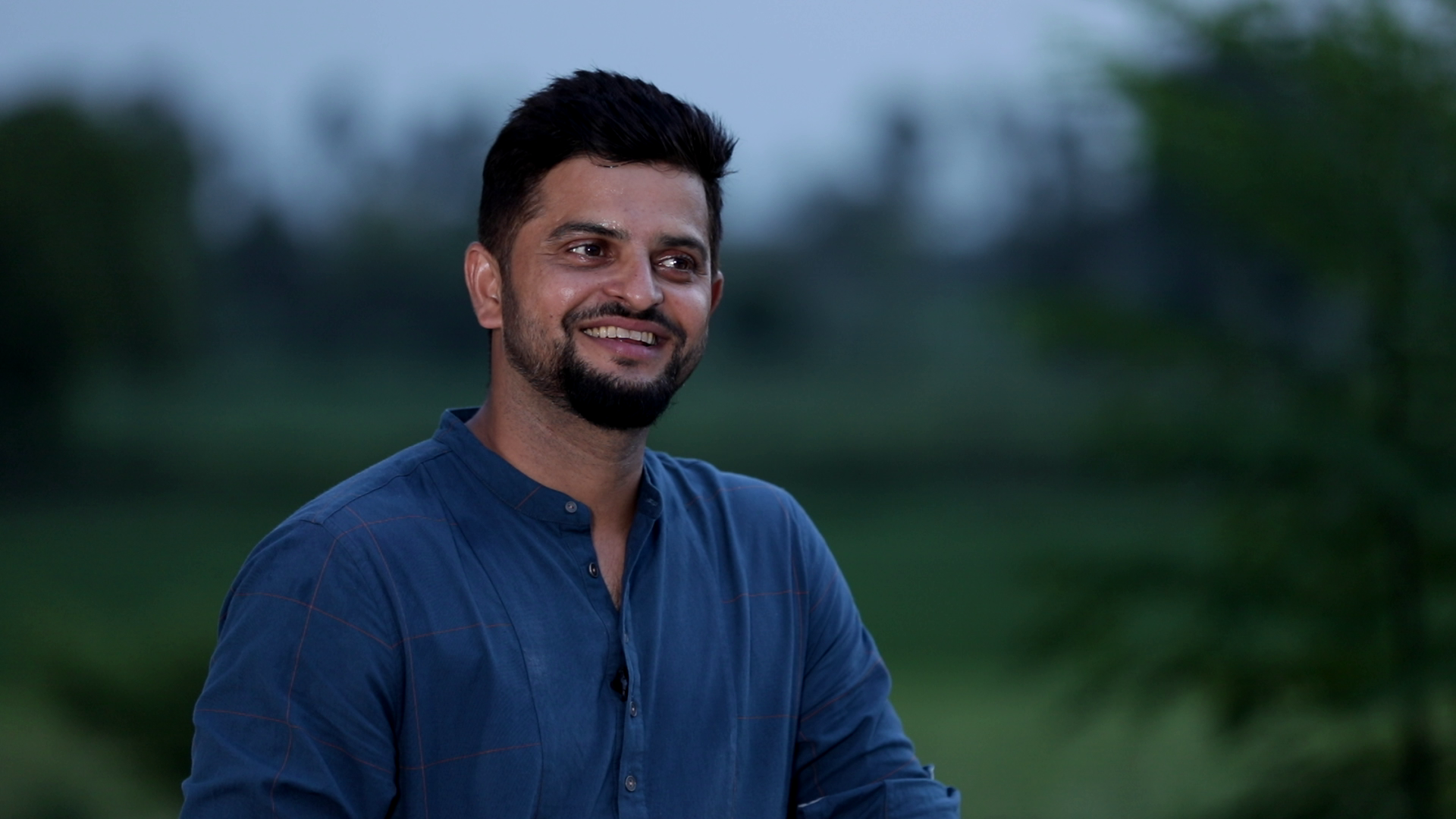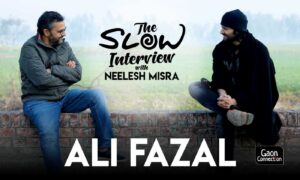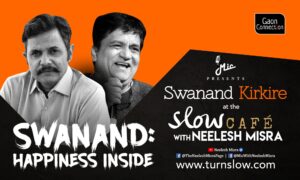We all know of Suresh Raina, the typical Mr Dependable, who is known to rise to a challenge be it while playing for the country, or for Chennai Super Kings in the IPL. Usually, when we speak of sportspersons from regular backgrounds in small-town India rising to the top, their journey is painted in broad brushstrokes. You know they played tennis ball cricket, but you would not know they took on a substitute fielder’s job in a local match, just for chai and a samosa! You’d know they struggled to find their place under the sun, but you invariably would not know that they struggled with themselves too, before finding that theraav, that place of peace, that mental space where they realised what they were born to do and what they had to do to get there.
Journalist-lyricist-storyteller Neelesh Misra’s The Slow Interview with cricketer Suresh Raina offers you just the things you usually don’t know. For a little over two hours, you travel with the cricketer as he recounts his early days, the philosophy that drives him, the love of his life Priyanka, his passion to cook born out of the need to eat good food… and you figure that he can hold a tune well too.
The Slow Interview series can get addictive, simply because rarely do you get to see the camera cut away from the interview and focus on a squirrel in the middle of its meal, a goat kid bounding towards the screen, or the mic lean in to capture the singing of the cicada and other insects of the night even as the conversation continues in the background. Sometimes, like in real life, you strain your ears to catch a word. In a way, The Slow Interview is also an invitation to the viewer to step back, reassess and embrace life at its own pace.
People like Raina lend themselves beautifully to the concept of the show, because while they have achieved popularity, their lives have not been dissected piecemeal for everyone’s consumption. And so, you follow Misra as he gently nudges Raina, who gets more and more comfortable as the minutes tick by, to reveal incidents and inspirations that shaped him.
By the end of the show, you also know that cooking is deeply meditative for Raina. Yes, he might have begun by cooking potatoes in a foreign land, because he was vegetarian and could not eat the food there, but he can make a mean baingan bharta on a wood fire “with a smoky flavour” cracking twigs to fit them into the chulha even as he sweats buckets, just like on the field.
Raina’s story begins in Muradnagar, in a home with five children, a strict father who worked in the Ordnance Factory and a mother who was the emotional anchor. He left home at 14 to train in Lucknow, and returned to give up on his dreams, as life in the hostel was difficult; the ragging did not help either. He was taken back by his brother, and the rest is history. He speaks of early morning tosses in the dark, 6 am tea from Sharmaji, tender hands that struggled to hold a big bat, warm compresses his mother pressed on his bruised hands, and a life devoted to practice.
As much as the show is about Raina, it is about those who influenced him and those he loves. Dhoni is Bhai (ironically, recently, both announced their retirement from cricket the same day!) and he speaks a lot about why he stands tall as a person. While there are a lot of good words for star cricketers and those who will soon become names to reckon with, the one person who is an unseen presence in the interview is Rahul Dravid. The Wall was Raina’s Rock! He encouraged him at a time when Raina felt low after getting out in his very first match, and told him to show his fielding prowess. And that’s when Irfan Pathan makes a telling remark. “Yeh captain nahi hain, bhai hain” (He’s not just our captain, he’s an elder brother).
The interview refers to a lot of dates and years and tours, but look beyond and you get to the root of what makes a person. We might not have seen Raina speak much so far, but there’s a refreshing candour about how he approaches life and the game, and he gives credit where due.
The IPL, he says, changed the structure of the Indian team and how the players approached a match. “From singles, we went to sixers, our thought process changed.” The IPL helped players earn money, but on the flip side left some struggling to maintain that lifestyle. “After the IPL, we know players from other countries very well. We know what perfume someone likes, what song they like listening to, who sleeps late, who is particular about fitness… ”
Raina’s bond with Dhoni is legendary. He speaks of how they communicated using their eyes, to decide whether to go for a run or two. Once, during a tour when they stayed together in a hotel, Dhoni said he would sleep on the floor. A relieved Raina told him that he felt most comfortable on the floor too. “We grew up like that. We slept on the floor or on a plank with a quilt. We would find a mosquito net and get in. Even today, I prefer eating with my fingers; I don’t like cutlery. Our seniors taught us how to use it, but if you don’t touch the rice, how will you know whether it’s cooked well or not?”
Patriotism is not just about making loud pronouncements. It gets very clear what love for the nation can also do to a person when Raina says, “When you see the flag, you calm down”.
Raina speaks of the uncomfortable things with a certain ease. Of the people left behind. Of talented cricketers who did not make it to the chosen 15 because there was no space in the team. “Luck and karma do play a part. Everyone is talented, everyone’s families want them to play for the country. But, only some manage.”
His perspective of being a leftie batsman is unique. “It’s like watching a big picture in a whole new light. You see the world differently. It’s a blessing.”
In The Slow Interview, Raina says he still has five years of cricket left in him. He retired in some weeks, though. And, had to return from the IPL because his family needed him.
But, go back and watch this interview, and see why cricket is alive and kicking in a person who first fell in love with hitting a tennis ball with a rudimentary bat, breaking windows in the process. A child who delighted in the 21 rupees he would earn in local matches. A person who once spent three days out of home, playing in a local tournament, with no way of letting the family know where he was. He returned with Rs 101, and to some thrashing. A teenager who travelled by train with his kit bag, people asking him what he was selling. A trainee who would come home in an unreserved coach, sitting on rolled up newspapers by the toilet. And, the younger brother who missed his sister’s wedding to play in the Deodhar Trophy.
From a time when he did not speak English and spoke in sign language to a person who speaks about how travel opens minds and lends a certain refinement to character, Raina has seen tremendous personal growth. His best lesson probably came from coach Gary Kirsten: “However big a player you are, it is more important to be a good person.”
Today, when you see jersey number 48, you know the sweat and the struggle was all worth it.
Watch The Slow Interview here



















